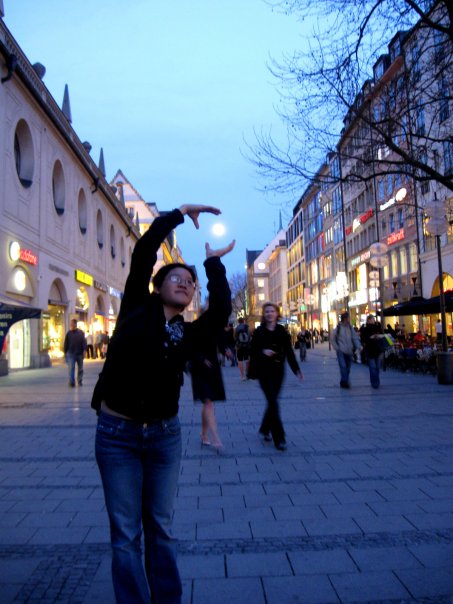When foreigners, or at least Americans from my personal experience, think of Germany, the first images that pop up in their minds are NAZIS, war, the military and a harsh, guttural and supposedly very unpleasant language.
In one of my classes where we recently discussed cultural symbols or stereotypes, one classmate said:
When I was young, my family lived in England for a few years and I went to primary school there. Even at that young age, one of the first questions all of the other kids asked me when they knew I was from Germany was, "Are you a Nazi?" We never were and never will be Nazis, and we have absolutely nothing to do with the Nazis. But I will never forget that memory.
One of the problems that is the root of stereotypes likes this is that the large majority of media, primarily films, released or made in other parts of the world outside of Germany portray and only portray scenes and events from World War II. Consequently, the majority of the public only gets to see the strict military codes, the cold, barked commands from officers (but what military doesn't bark and yell its commands?) and the cruel, merciless reality of war. And so, Germany gets less and less opportunities to elbow past the onslaught of black-and-white war films and show its true beauty to those who misconceive its image.
The taboo subject misconception. To clear this for many of you, once and for all, it is not taboo or forbidden to talk about Nazis, Hitler, the events surrounding World War II, etc. in Germany. To put this in a different perspective, it isn't taboo for Americans to talk about historical slavery or the extreme segregation in earlier centuries of the US. Nor do we want to be singly labeled as a country for those great, terrible years in which another major group of people was also treated poorly, to the point of deep shame. Talking and teaching about it helps those today understand the past mistakes and learn from them, and Germany does not censor the subject from its populations. You wouldn't want to be labeled for the mistakes of your parents, and you wouldn't want to be labeled for the mistakes of your precursors.
Germany is not all a hard, industrialized country of concrete jungles, but also miles and miles of beautiful natural land, and still and silent woods, and perfect balances of mountain and water, and breezy fields as far as the eye can see under endless blue skies. The German people may be naturally more guarded and distant on the outside, but are usually genuinely friendly and warm-spirited souls on the inside. The German language is not an ugly, churned out mash of discordant syllables, but a language with its own music, flow and timbre, as any other language, and beautiful and incredible in itself, as any other language.
You only need an open mind and open heart to see these things, and not only in the German culture, but in each and every culture in the world.

No comments:
Post a Comment